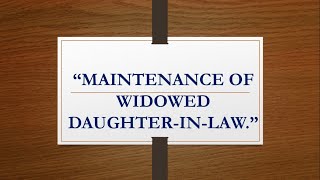Asutosh Mookerjee, J.@mdashThis is an appeal by the first defendant in an action in ejectment. On the 23rd March 1903 the plaintiffs, who are occupancy-ryots, granted a sub-lease to the defendant on an annual rent of Rs. 5, for a term of nine years from 14th April 1903 to the 13th April 1912. The lease as also its counter part contained a covenant that upon the expiry of the term, the tenant would take a fresh settlement and that the landlords would grant him such settlement. On the 19th August 1912, the plaintiffs served a notice upon the defendant and offered him a lease for a term of five years on an annual rent of Rs. 10. The defendant refused to accept this offer and claimed a renewal for nine years at the original rent. On the 7th October 1912, the plaintiffs instituted this suit to eject the defendant. The defendant pleaded that he was in the position of a lessee who had obtained a renewal of the original lease for a term of nine years at the annual rent of Rs. 5 and was consequently not liable to be ejected. The Courts below refused to give effect to this contention and have decreed the suit upon this appeal. The view taken by the Courts below has been assailed as erroneous in law.
2. It is plain, as was pointed out by Rampini, J., in Ali Mohammad Bepari v. Nayan Rajah Bhuiya 13 Ind. Cas. 912 : v15 C.L.J. 122 : 10 C.W.N. 620 note that notwithstanding the provisions of Section 85 of the Bengal Tenancy Act, a stipulation in a lease granted by a ryot to an under-ryot that after the expiry of the nine years for which the lease was granted, the ryot would grant the under-ryot a fresh lease of the land, is valid. This view was accepted as correct in Abdul Karim Patwari v. Abdul Rahman 13 Ind, Cas. 364 : 15 C.L.J. 672 : 16 C.W.C. 618. We start, then, with the position that the covenant mentioned is binding upon the parties; the question for consideration is its legal effect. The plaintiffs-respondents argue that it is inoperative in law, because it is so vague and uncertain that it cannot be deemed specifically enforceable; and in support of this contention they rely upon the decision in Surendra Nath Sen v. Dinabandhun Nath 4 Ind. Cas. 535 : 13 C.W.N. 595. In our opinion, this contention is not well founded on principle. To hold that the Covenant left the term of the lease and the rent payable thereunder both uncertain, is to impute to the contracting parties an intention that the covenant, though deliberately inserted in the lease and its counterpart, was futile. The only reasonable interpretation of the covenant is that the parties agreed that the lease would be renewed on the same terms and for the same period as the original lease. If they intended that the fresh lease would be for a different period and at a different rent nothing was easier for them than to make such intention explicit. The clause might, for instance, have provided that on the expiry of the term, there would be a fresh settlement for a specified number of years and rate of rent; or it might have laid down that the lease would be renewed at what might be deemed fair rent. In the absence of such stipulation we cannot but hold that the covenant is for the renewal of the lease for the same period and on the same rent as the original lease.
3. The principle applicable to eases of this character is stated in Secretary of State v. Forbes 17 Ind. Cas. 180 : 16 C.L.J. 217 which explains that where there is a covenant for renewal, if the option does not state the terms of renewal, the new lease Would be for the same period and on the same terms as the original lease in respect of all the essential conditions thereof except as to the covenant for renewal itself. This view is supported by the decisions in Pric v. Assheton 1 Y. C. 82 : 41 R.H. 222 : 4 L.J. Ex. Eq. 3; Rickards v. Rickards 2 Y.C.C.C. 419 : 63 E.R. 187; Lewis v. Stephenson (1898) 67 L.J.Q.B. 296 : 78 L.T. 165 and Austin v. Newham (1906) 2 K.B.15. 167 : 75 L.J.K.B. 563 : 95 L.T. 490. The respondents have ingeniously argued that if this view be adopted the effect of the renewal clause would be the grant of a lease in perpetuity and an indirect evasion of Section 85 of the Bengal Tenancy Act. This contention is fallacious, because the covenant for renewal itself is not produced in the renewed lease unless there is clear indication that the parties intended the lease to be perpetual. The argument of the respondents is best answered in the words of Knight Bruce, V.C., in Rickards v. Rickards 2 Y.C.C.C. 419 : 63 E.R. 187: "It is not every new lease that is a renewal of a lease. The word ''renewal'' is a relative term, which of necessity requires to be construed by reference to something else.... By reference to; what? To the lease that he has at the moment; it can be construed with reference to nothing else. But it is said that the word ''renewal'', though referring to the same property, as included in, that lease, may not mean the same or a similar species of lease. That, I apprehend, is an inaccurate interpretation of the word. I take it that the term ''renewal'' means a renovation--a restoration of something to a former or original state--a repetition--a beginning again; it may mean each or either of those things, so far as there is any difference between them; it must, however, be a renewal, a renovation, or repetition or restoration of the same subject.... A renewal of a lease, where the context does ''not require any different interpretation to be given to it, must, therefore, mean the obtaining a lease as near as possible in every practicable circumstance to the existing lease--as if the subject, worn or wearing out, was to begin again." The choice lies in fact between two alternatives, either, to construe the covenant as futile or to interpret it as to provide for a fresh lease on the same terms as the original lease. Now it is an elementary rule that if it is possible so to interpret an agreement between the parties as to make it operative, effect should be given to it and the contract should not he pronounced unenforceable; as Kay, L.J., said in Mills v. Dunham (3891) 1 Ch. 576 : 60 L.J. Ch. 362 : 64 L.T. 712 : 39 W.B. 289 referring to Abbott v. Middleton 7 H.L.C. 68 : 28 L.J. Ch. 110 : 5 Jur. 717 : 11 E.R. 28 : 115 R.R. 38 and Grey v. Pearson 6 H.L.C. 61 : 26 L.J. Ch. 473 : 3 Jur. (N.S.) 823 : 5 W.K. 454 : 10 E.R. 1216 : 108 R.R. 19 where a clause in a contract is ambiguous, a, construction which will make it valid is to be preferred to one which will make it void. The interpretation which we put upon the clause is undoubtedly consistent with the language used; and we should not consequently accept, as the Court did in Surendra Nath Sen v. Dinabandhu Naik 4 Ind. Cas. 535 : 13 C.W.N. 595 the contention of the plaintiffs that although the parties intended to provide for a renewal of the lease, they made the covenant so vague and uncertain in material particulars that their intention was sure to be defeated. The result is that the defendant is in the same position as if he had been granted, a lease for nine years at the rate of Rs. 5 a year from the 14th. April 1912 Consequently the present suit for ejectment cannot be maintained.
4. The appeal is thus allowed, the decree of the District Judge set aside and the suit dismissed with costs in all the Courts.

